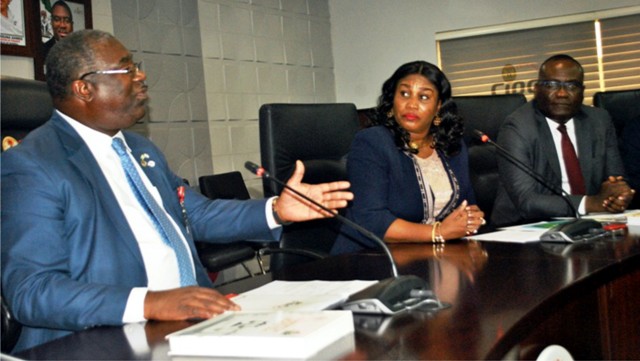Business
RSG To Set Up Economic Empowerment Trust Fund

As part of efforts to create jobs and boost employment opportunities, the Rivers State Government says it would set up an economic empowerment Trust Fund.
The State Commissioner for Employment Generation and Economic Empowerment, Dr Leloonu Nwibubasa who disclosed this during the 2nd Rivers State Employers Round-table in Port Harcourt on Tuesday, said the economic trust fund would be set up in collaboration with relevant stakeholders in the private sector to effectively drive the process in a sustainable manner.
Nwibubasa stated that the round-table which has as its theme ‘Collaborative Stakeholders Action for Job Creation in Rivers State’, if diligently harnessed will provide opportunities that will improve the life of our people, reduce poverty, unemployment, crime and insecurity in the state.
While stating that Governor Nyesom Wike has given his support to the Ministry to bring together stakeholders in the employment industry to contribute knowledge, the commissioner noted that government cannot plan and implement programmes without the right statistics.
“The Ministry has taken steps to correct this deficit by opening a more interactive portal www.megee.rv besides the rivjobs. Steps are also being taken to establish an employment bureau in all local government areas, a legislation to this effect is in the works,” he stated.
“Drawing from our recent political experience, I can assure you that the re-elected Governor of Rivers State is prepared more than ever to reposition the State on the path of economic prosperity. The Governor is working hard to ensure we have a safe state. Several measures are already in place to return the state to investors’ haven,” Nwibubasa stated.
Earlier in address of welcome, Chairman Local Organising Committee of the event and President, Port Harcourt Chamber of Commerce, Chief Nabil Saleh said job creation is an aspect of economic development which sadly in the past has been perceived to be the sole responsibility of government.
Saleh said, “Permit me to once more restate that, that thinking is wrong as we all need to work together (both the government, private organisation and private individuals) to make it come to pass;” even as he charged all invited companies operating in the state and stakeholders to make their input so as to come out with a draft action plan.
“This will enable us achieve our set goal of creating at least one million jobs in the next five years. Let us have it at the back of our minds that this committee is totally dedicated to put words into action and upgrade the human capital development of our dear Rivers State and her people collectively,” he said.
Dennis Naku
Business
Agency Gives Insight Into Its Inspection, Monitoring Operations

Business
BVN Enrolments Rise 6% To 67.8m In 2025 — NIBSS

The Nigeria Inter-Bank Settlement System (NIBSS) has said that Bank Verification Number (BVN) enrolments rose by 6.8 per cent year-on-year to 67.8 million as at December 2025, up from 63.5 million recorded in the corresponding period of 2024.
In a statement published on its website, NIBSS attributed the growth to stronger policy enforcement by the Central Bank of Nigeria (CBN) and the expansion of diaspora enrolment initiatives.
NIBSS noted that the expansion reinforces the BVN system’s central role in Nigeria’s financial inclusion drive and digital identity framework.
Another major driver, the statement said, was the rollout of the Non-Resident Bank Verification Number (NRBVN) initiative, which allows Nigerians in the diaspora to obtain a BVN remotely without physical presence in the country.
A five-year analysis by NIBSS showed consistent growth in BVN enrolments, rising from 51.9 million in 2021 to 56.0 million in 2022, 60.1 million in 2023, 63.5 million in 2024 and 67.8 million by December 2025. The steady increase reflects stronger compliance with biometric identity requirements and improved coverage of the national banking identity system.
However, NIBSS noted that BVN enrolments still lag the total number of active bank accounts, which exceeded 320 million as of March 2025.
The gap, it explained, is largely due to multiple bank accounts linked to single BVNs, as well as customers yet to complete enrolment, despite the progress recorded.
Business
AFAN Unveils Plans To Boost Food Production In 2026
-

 Politics3 days ago
Politics3 days agoEFCC Alleges Blackmail Plot By Opposition Politicians
-
Business3 days ago
AFAN Unveils Plans To Boost Food Production In 2026
-

 Sports3 days ago
Sports3 days agoJ And T Dynasty Set To Move Players To Europe
-
Business3 days ago
Industrialism, Agriculture To End Food Imports, ex-AfDB Adviser Tells FG
-
Politics3 days ago
Datti Baba-Ahmed Reaffirms Loyalty To LP, Forecloses Joining ADC
-
Politics3 days ago
Bayelsa APC Endorses Tinubu For Second Term
-
Business3 days ago
Cashew Industry Can Generate $10bn Annually- Association
-

 Entertainment3 days ago
Entertainment3 days agoAdekunle Gold, Simi Welcome Twin Babies

